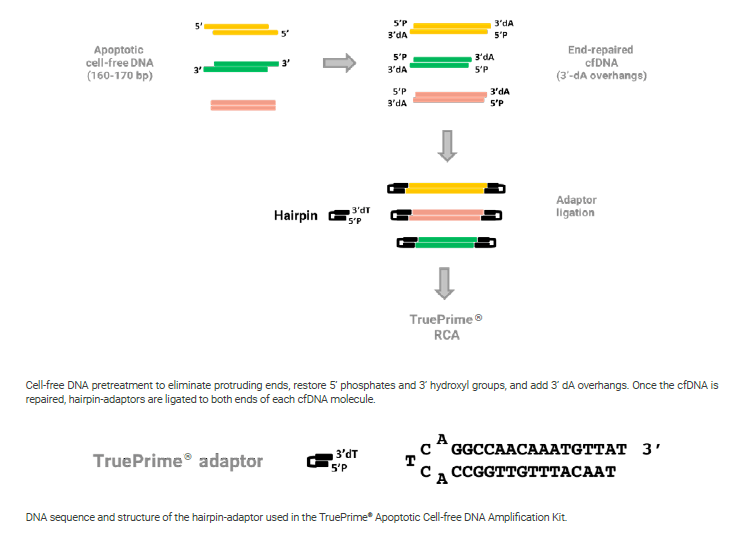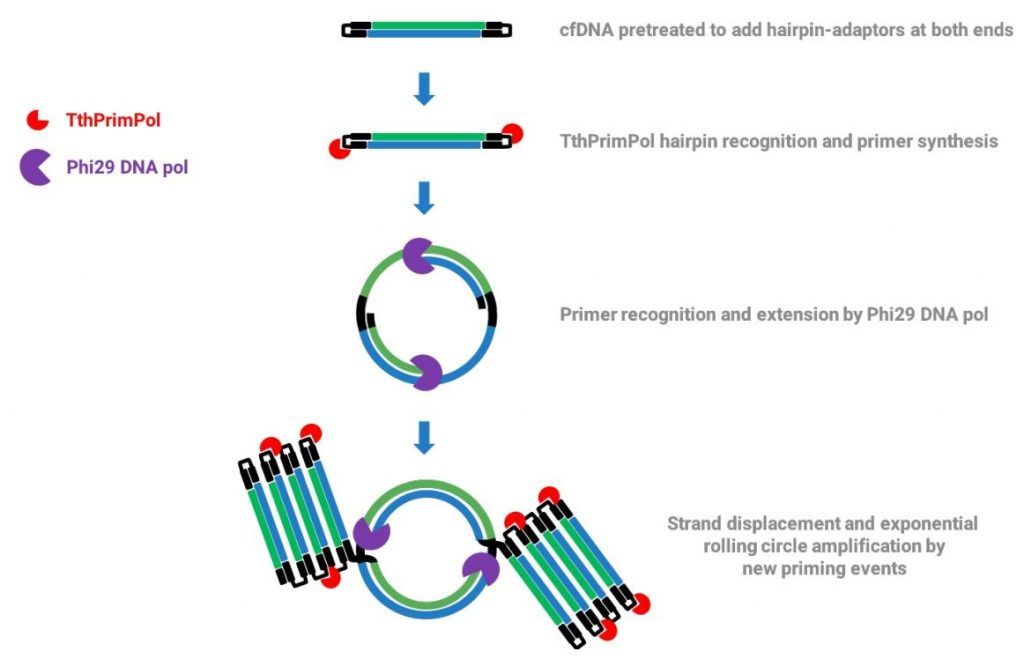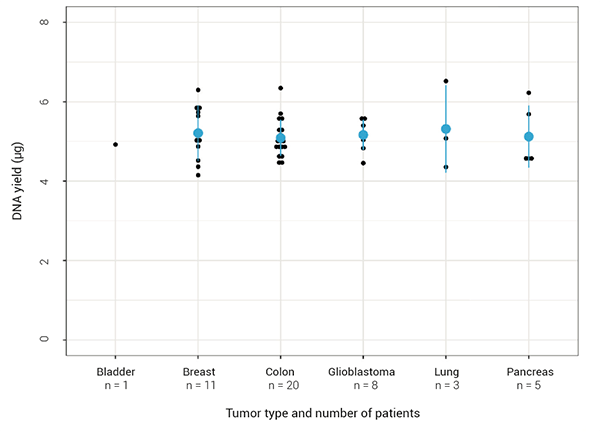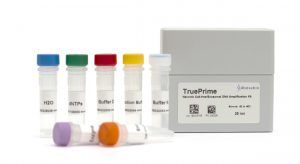The 4BB™ TruePrime® Apoptotic Cell-Free DNA Amplification Kit is optimized to exponentially amplify low input cell-free DNA (160-170bp) derived from apoptotic cells in liquid biopsy samples. One of the main challenges in cell-free DNA analysis is the limited amount of DNA obtained from bodily fluids, which affects the number and type of tests that can be performed. Further challenges are posed by short DNA fragment lengths, as well as the damaged nature of apoptotically-derived DNA. See how the 4BB™ TruePrime® Apoptotic Cell-Free DNA Amplification Kit provides solutions to these challenges.
Using multiple displacement amplification (MDA), accurate isothermal DNA amplification takes place, using cell-free DNA obtained from plasma, serum, urine, CSF or any other bodily fluids.
Note: This kit cannot be used for the amplification of DNA from necrotic cells (≥1kb). For this we would recommend the 4BB™ TruePrime® necrotic cell-free / exosomal DNA amplification kit.
| Features | Benefits |
|---|---|
| Integrated cell-free DNA pre-treatment (end-repair + dA-tailing reaction and ligation of hairpin-adaptors) | Efficient amplification of apoptotic cell-free DNA without additional pre-treatment protocols and additional components (cost and time saving) |
| Primer-free amplification – TthPrimPol synthesizes the primers for Phi29 DNA polymerase | No primer-associated artefacts such as primer dimers – better representativity (cost and time saving) |
| Optimised for small template sizes (160-170 bp) | Optimized kit and protocol for small templates (time saving) |
| Excellent sensitivity – down to picograms of input material | Perfect for precious / rare samples |
| Reliable at a cfDNA input level of 100 pg, preserving SNVs and SNV frequencies across different sequencing technologies | Amplification product sequencing compatibility |
| High amplification yields | More amplification product available for extended testing (cost and time saving) |
| Excellent coverage with minimal bias | Reliable results for publication |
| Flexibility, up to 150 ng or 50 µl of cfDNA input | Applicational flexibility (time saving) |
| Wide variety of cell-free DNA sample sources • Plasma • Serum • Urine • CSF • Other bodily fluids | Less restriction in sample source – greater experimental flexibility |
| Streamlined workflow and reduced hands-on time | Cost and time saving |
Applications:
- Genetic research using small-fragmented (160-170bp) circulating cell-free DNA
- Cancer research







